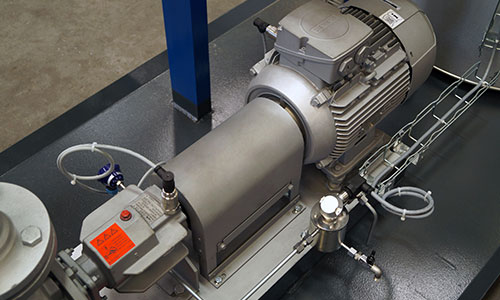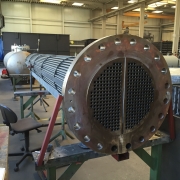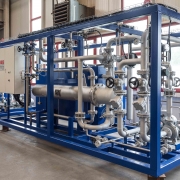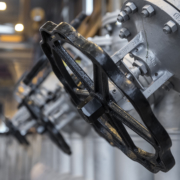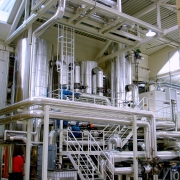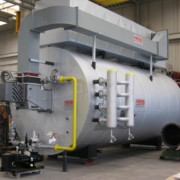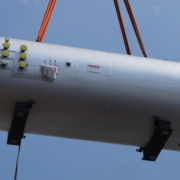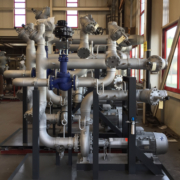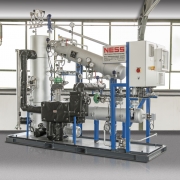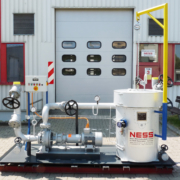Small parts with a big effect – leakages on pumps are an incalculable risk
For more than 5 decades, we have been supporting our customers with a comprehensive range of services, including maintenance and safety inspections.
It is important to us that the topic of regular, technical maintenance of the system and its components is not only understood as a purely legal obligation, but also as an essential means of minimising risks in the operation of the system as far as possible. This is preventive maintenance.
As safe as modern thermal oil systems are designed nowadays, a certain “residual risk” can never be excluded – even with optimal, regular maintenance.
Here is a small example from experience.
Since 2013, one of our customers has been operating a thermal oil system with 4,000 litres of oil volume for its processes. From the very beginning, all necessary maintenance has been carried out on the system. Basically, the entire system is very well maintained and in very good condition.
At the end of last year, our customer suddenly and unexpectedly noticed a strong oil vapour development in the container system. After a quick emergency shutdown and subsequent cooling of the system, they discovered that a large amount of oil had leaked into the collection tray.
They discovered the cause quickly.
It was the pump of the heater. Not an exceptional case, but not an everyday occurrence.
Normally, damage to mechanical seals announces over a couple of weeks, i.e. a longer period. During this period, a steadily increasing oil leakage can be detected at the affected pump and a corresponding reaction can be taken.
In this case, however, there was a sudden total failure of the mechanical seal and thus a sudden, very heavy leakage. The quick reaction of our customer and the local fire brigade prevented worse.
In order to be prepared for such a leakage in the future, our customer decided to install an automatic leakage monitoring system for the pump. With this monitoring system, they optimally ensure for the future that the system automatically goes into emergency shutdown in the event of such a leakage.
Authors:
Eric Holz | Service and Commissioning Engineer
Sven Nuxoll | Manager Service Contracts


